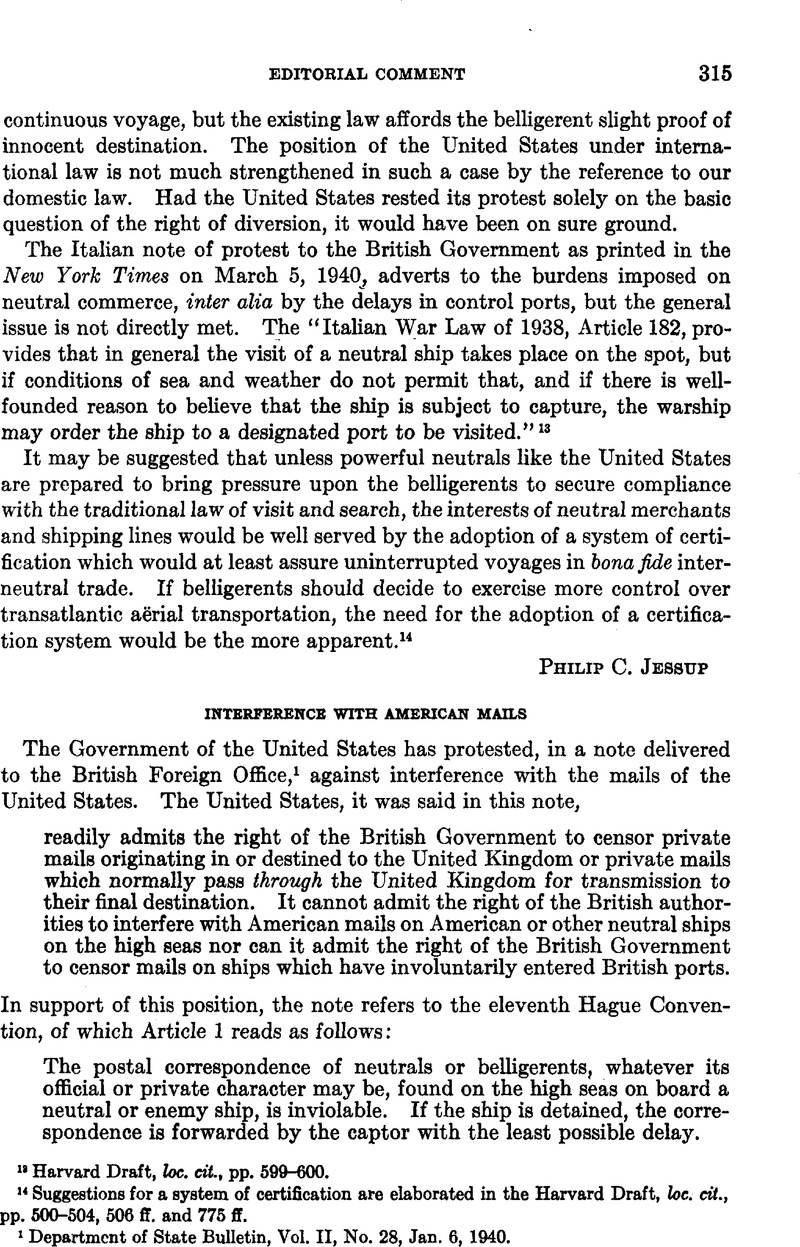No CrossRef data available.
Article contents
Interference with American Mails
Published online by Cambridge University Press: 12 April 2017
Abstract

- Type
- Editorial Comment
- Information
- Copyright
- Copyright © by the American Society of International Law 1940
References
1 Department of State Bulletin, Vol. II, No. 28, Jan. 6, 1940.
2 See Proceedings of the Hague Peace Conferences, Scott, J. B., ed. (New York, 1920), Vol. III, p. 1106 Google Scholar, where, in reply to a question, it was said that “postal packages are certainly excluded from the privileged treatment accorded postal correspondence.” See also, Report to the Secretary of State of the Delegates of the United States to the Second Hague Conference, Foreign Relations, 1907, Pt. II, p. 1163.
3 Papers Relating to Foreign Affairs, Diplomatic Correspondence (1863), Washington, 1864, Vol. I, p. 398 Google Scholar.
4 Mr. Seward to Mr. Welles, ibid., p. 402.
5 Scott, J. B., The Hague Court Reports (New York, 1916), p. 335 Google Scholar.
6 Savage, C., Policy of the United States toward Maritime Commerce in War, Department of State Publication No. 835 (Washington, 1936), Vol. II, pp. 433, 498–504Google Scholar.
7 Ibid., p. 505.
8 Ibid., p. 529.
9 Department of State Bulletin, Vol. II, No. 31, Jan. 27, 1940.
10 Savage, , op. cit., II, p. 595 Google Scholar.
11 Ibid., p. 528.
12 Savage, , op. cit., II, pp. 530–531 Google Scholar.




